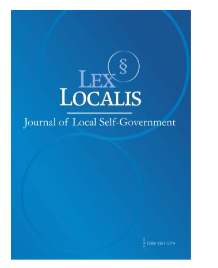PHARMACISTS AS FRONTLINE PROVIDERS IN SOCIAL, COMMUNITY, AND CLINICAL HEALTHCARE: A COMPREHENSIVE REVIEW
DOI:
https://doi.org/10.52152/801669Keywords:
Community pharmacist, primary healthcare, medication therapy management, chronic disease management, preventive services, public health, patient counseling.Abstract
Background: Pharmacists are the most accessible health care professionals and they are becoming more important in enhancing the healthcare services within the community. They do not only perform the traditional dispensing functions but also preventive health, managing chronic diseases, educating patients, and advocacy to promote the health of the population in general.
Purpose: The purpose of the proposed systematic review is to determine the role played by community pharmacists in terms of patient outcomes, health promotion, disease prevention and the general efficiency of the healthcare system.
Method: Systematic search was done in Pubmed, Scopus, Web of science, Embase, and Google Scholar to find articles that were published since 2000 to 2025. Qualified studies encompassed randomized controlled trials, cohort studies, cross-sectional survey, policy analysis, and systematic reviews that conducted studies that investigated pharmacist-led intervention in community-based healthcare. Data were synthesized and extracted as themes within six domains namely medication management, patient education, preventive services, chronic disease management, minor ailment care and public health advocacy.
Result: 138 studies were included in the study. It was shown that the pharmacist-led medication therapy management increased adherence by 20–30% and decreased adverse drug events. Counseling interventions increased the level of health literacy and also helped with smoking cessation of 25-35% quit rates. Vaccination programs conducted by pharmacists led to higher immunization rates, whereas chronic disease care led to a decrease in systolic blood pressure (8810 mmHg) and HbA1c levels (0.5-1.2%). The minor ailment services redirected as much as 15% of non-emergency cases out of the primary care. Pharmacists led public health campaigns that cut down inappropriate use of antibiotics by 30 %.
Conclusions: Community pharmacists are essential to the contemporary healthcare. Their extended scope enhances clinical outcomes, prevents care and minimizes healthcare system burdens. The key to an all-inclusive integration of pharmacists in community health structures is policy reforms, reimbursement models, and interprofessional collaboration.
Downloads
Published
Issue
Section
License
Copyright (c) 2025 Lex localis - Journal of Local Self-Government

This work is licensed under a Creative Commons Attribution-NonCommercial-NoDerivatives 4.0 International License.








